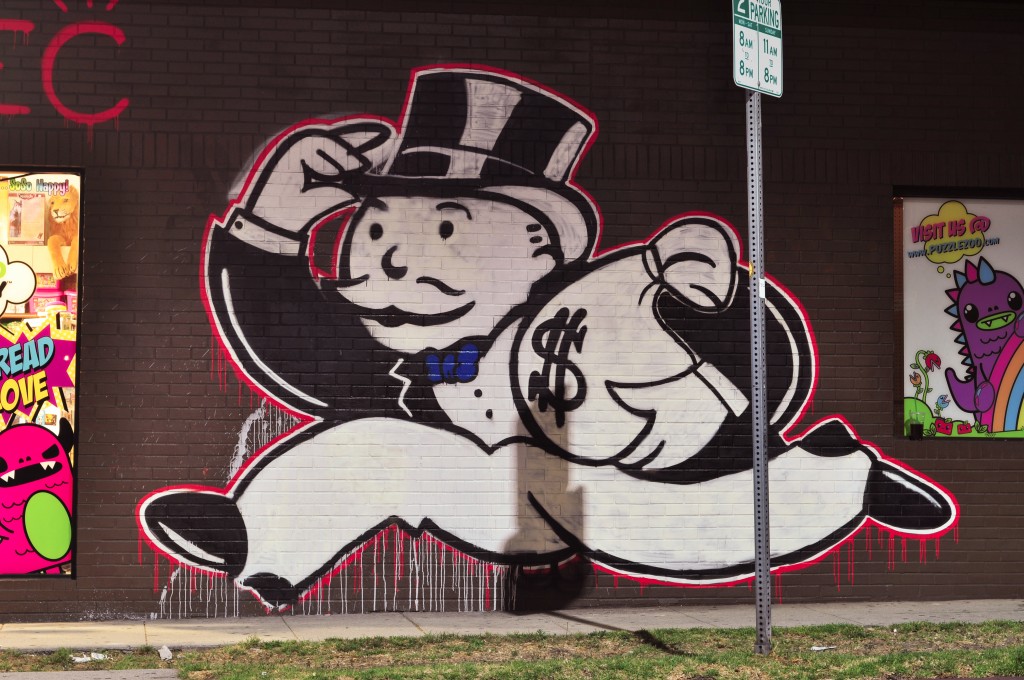
When they work well, democratic governments make laws to protect people from harmful things that they cannot prevent on their own. This is the basic role of good government, yet the American public hears a constant drumbeat of anti-regulatory messages from conservative politicians and think tanks and influential business organizations like the U.S. Chamber of Commerce. According to these groups, regulations are almost always bad for the country, because they interfere with “free” market activity and inhibit investment and job growth.
But the arguments against sensible regulations are not valid empirically or in principle. Much evidence shows that the benefits of regulations vastly outweigh the costs. Furthermore, anti-regulatory claims rest on faulty ideas about the economy and democratic governance.
Wrong Empirically
For many years, the U.S. Office of Management and Budget has systematically studied the costs of regulation. Looking at more than 100 major regulations over the ten-year period ending in 2010, it found that benefits were three to ten times greater than costs. For every regulatory agency considered, benefits exceeded costs. As the Office reported to Congress in June 2014, the economic benefits of federal regulations totaled in the hundreds of millions of dollars over the previous decade, while the costs were a mere fraction of that total.Many other studies have also shown that regulations have little impact on employment – or else a slight positive effect on balance. Businesses find ways to deal with new regulations. When automobile companies were required to reduce air pollution, for example, they started using catalytic converters. Car prices rose slightly, perhaps leading to some job layoffs, but employment grew overall as more workers were hired to make, sell, and install the converters.
Wrong about How the Economy Really Works
In Econ 101, students learn that, in theory, a pure market consisting of large numbers of independent buyers and sellers will produce goods and services in optimal amounts at the lowest possible prices. In this ideal pure market world, rules restricting buyers or sellers can only distort the optimal distribution of goods and services. However, this abstract academic lesson tells us little about the real world, because pure market conditions almost never exist in actual commerce. Real-world markets differ from theoretical models in markets in several ways – and good regulations can help those imperfect markets work better:- Real-world customers often lack complete information about products they might buy, or have difficulty understanding technical terms describing goods like cars, pharmaceutical drugs, and mortgages. Consumer protection regulations help by requiring companies to spell out the features and risks of their products.
- In the real world, markets are often dominated by one or a small number of sellers, who can limit production and force customers to pay artificially high prices. Anti-monopoly regulations can insure greater competition and fairer prices.
- Unregulated markets do not take social costs into account. Unimpeded by public rules, anything-goes markets give us air and water pollution, employment discrimination, exposure to pornography by children, and other harmful results that most people in society abhor. Democratic governments can put in place rules that force sellers to avoid or limit such unacceptable consequences of market activities (called “negative externalities”).
In addition to the departures from “pure free market” theory that almost all experts understand, the new field of behavioral economics has discovered clear evidence that peoples’ preferences are strongly influenced by how choices are presented to them. For example, experiments show that people’s plans about retirement programs vary depending on whether they have to “opt in” or are automatically enrolled and have to “opt out.” Corporations spend billions to influence consumer preferences and set up choices to maximize profits, so it hardly seems out of line for governments to use product information rules to ensure optimal consumer information and beneficial options for citizens.
Wrong about Good Governance
Throughout American history, governments have subsidized businesses and established conditions for markets to function. But periodically, as Americans experienced unacceptable harms from market practices, they have insisted that public authorities override protests from profit-seekers and step in to secure the public interest. Examples of such public-interest regulations include laws to outlaw child labor, building code regulations to ensure stable construction and prevent catastrophic fires, food and pharmaceutical regulations, environmental protections, and laws to prevent irresponsible mortgage lending. Those who claim that all such regulations are unwarranted are implying that governments should only maximize private profits, not protect the environment and ensure public health and security. This makes little sense.Claims that regulation is bad for business are wrong – because the interests of more companies are well served by regulations in the public interest. To sell their products, businesses depend on public confidence that products will not harm people. Businesses also benefit when all of them have to meet the same standards, so some firms cannot undercut others. Even when some businesses are in fact disadvantaged by proposed regulations—such as coal-fired power plants required to limit pollution—others will benefit, such as firms promoting wind and solar power.
Not all regulations are effective or achieve their purposes. Some are too restrictive, while others are weak or improperly implemented. But that does not mean that all regulation is harmful. Although society benefits from well-functioning markets, critics are wrong to claim that all government regulations are bad for business. To produce optimal results for firms and citizens, America needs a balance between markets free from unnecessary impediments and public rules to prevent businesses from inflicting grievous harms on people and the environment.

 Research to Improve Policy: The Scholars Strategy Network seeks to improve public policy and strengthen democracy by organizing scholars working in America's colleges and universities. SSN's founding director is Theda Skocpol, Victor S. Thomas Professor of Government and Sociology at Harvard University.
Research to Improve Policy: The Scholars Strategy Network seeks to improve public policy and strengthen democracy by organizing scholars working in America's colleges and universities. SSN's founding director is Theda Skocpol, Victor S. Thomas Professor of Government and Sociology at Harvard University.